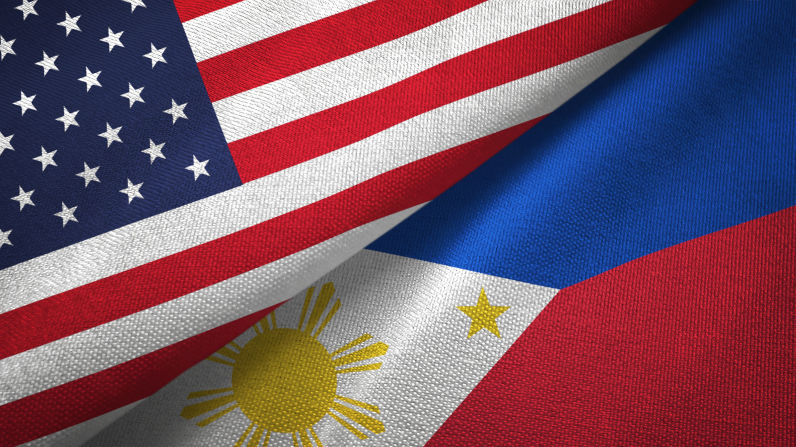In an essay entitled “Australia’s Choice” published in Australian Foreign Affairs in 2022, the leading Singaporean commentator on international relations, Kishore Mahbubani, highlighted how Australia needed to choose whether to be “a bridge between East and West in the Asian Century – or the tip of a spear projecting Western power into Asia” It transpires that certain events may have eased this pressure to choose.
In May. 2022, Ferdinand “Bong Bong” Marcos was elected President of the Philippines, taking office the following month. He replaced Rodrigo Duterte. Marcos is the only son of Ferdinand Marcos, the notorious former President (who served from 1965 until he was deposed in 1986) and his equally tarnished wife, Imelda.
As it happens, in May 2022, Scott Morrison, head of the conservative coalition government in Australia, was also replaced (as Prime Minister) by Anthony Albanese from the opposition, Australian Labor Party (ALP). It was Morrison’s increasing reliance on aggressive megaphone-diplomacy to harangue China, in accordance with US wishes, which helped prompt the acute observation by Mahbubani.
Mark Valencia argued convincingly, about a year ago, that the choice by Marcos Jr to “side with the US in its seminal contest with China for hegemony in the region” posed dangers for the Philippines and the region. It was, Valencia added, a clear reversal of the Duterte approach and it starkly contradicted Marcos’ campaign claim (supporting the Duterte policy) that: “Allowing the US to play a role in trying to settle territorial disputes with China will be a ‘recipe for disaster’”.
Somewhat later, this changing role for the Philippines, ushered in by the new President was perceptively discussed within the Hong Kong network of regional-geopolitical commentators. This commentary noted how, now that Washington’s preferred Man in Manila was in power, the Philippines was able to assume responsibility as the leading, regional Sino-spear-pointing deputy for the US. Pressure on Canberra to continue is this role was, thus, reduced. This, in turn, has made it easier for the incoming Albanese ALP Government, to consign the Morrison megaphone to long-term storage and begin to rebuild a still tense (as Washington prefers) but measurably more civil relationship with Beijing.
One factor shaping the new Manila-Washington relationship is the whereabouts of the “Marcos Millions”. The father and mother of Bong Bong Marcos are believed to have criminally appropriated up to $US10 billion worth of assets belonging the Philippines. After Marcos senior was deposed, he and his wife naturally fled to America with much of the loot.
The new President, Cory Aquino, soon after established the Presidential Commission on Good Government (PCGG) with a brief to recover “all ill-gotten wealth accumulated by former President Marcos” and others. The PCGG has recovered around US$4 billion in assets, leaving the majority off this stolen wealth still at large. Both Imelda (especially) and Bong Bong Marcos have tried to block the work of the PCGG, with a view to retrieving their property.
Almost certainly, senior operatives within the US national security establishment will possess knowledge of the final location of most of the unrecovered Marcos Millions. For a range of reasons, it is, thus, clear that the new President Marcos is powerfully inclined to maintain significantly closer relations with Washington than President Duterte.
Unsurprisingly, that spear-tip closeness has become sharply evident over the last two years. The Philippines has significantly elevated activities in the South China Sea bound to needle China – regularly with on board Western media outlets ready to cover the action.
There are now, more frequent references to the Manila win against China in the South China Sea decision under the United Nations Convention on the Law of the Sea (UNCLOS) in 2016. China, though, refused to participate in this arbitration and the US, which backed the Philippines so heavily in this case, has always refused to sign and ratify UNCLOS.
The US has also been given military access to new bases in the Philippines and the Philippines has been cozying up to Japan, militarily, with US encouragement. Moreover, Marcos recently denied the existence of any agreement with Beijing to defuse tensions in the South China Sea.
There is, however, growing push-back within the Philippines against what is seen as a foolhardy realignment. One of the major reforms of the Acquino era was, after all, the Manila-directed closure, by 1991, of the huge American Clark Airbase and Subic Bay Base. Those living in the Philippines can see, too, how America is now conducting a very hot proxy-war by openly touting the advantages of “fighting to the last Ukrainian”
Meanwhile, a recent (annual) survey by Singapore’s Yusof Ishak Institute, highlighted by Channel News Asia, reports that “ASEAN’s position on US-China rivalry has tipped towards China for the first time in recent years”, The Biden Administration’s terrible involvement in the Gaza genocide and its on-off, cavalier neglect of South East Asia are two key factors said to explain this. The Philippines, a key member of ASEAN, is now measurably more out-of-sync, under Marcos Jr, with the ASEAN consensus on Sino-American relations.
One thing everyone – apart from the US and it closest war-favouring allies – can be pleased about is that those previous huge, intimidating American Filipino bases no longer exist. Indeed, some in the Pentagon – and White House -must be wondering today: how did we let this happen?
Finally, it would be rash to think that Australia has now been exempted from paramount Sino-spear-projecting responsibilities indefinitely, thanks to the change of government in Manila. To begin with, each President of the Philippines is limited to a single term of six years.
Next, the primary American project to contain, still better reverse, the rise of China intensifies with every passing year. If one (deputised) Sino-spear-pointer is a plus factor within this strategy, then having two is surely even better. A Federal Election is due in Australia in 2025. And which party (and this matters) would Washington like to see in power in Canberra? The conservative coalition, now in opposition, led by Peter Dutton, has made it clear that they would relish the chance to retrieve that Morrison megaphone and return Australia to being the tip of a spear projecting Western power into Asia.
Richard Cullen is an Adjunct Professor in the Faculty of Law at the University of Hong Kong. He was previously a Professor in the Department of Business Law and Taxation at Monash University in Melbourne, Australia.

